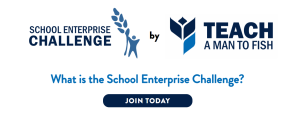UN Women is seeking proposals empowering CSOs to advocate for gender equality and women’s empowerment, through mapping CSOs and developing tailored training in evidence-based advocacy, supporting advocacy and investment in NAP GBV and safe public spaces.
UN Women’s goal in Timor-Leste is to promote women’s human rights and gender equality as the country works towards sustaining and furthering achievements instability and development; this includes efforts to ensure women’s right to live free from any form of violence, efforts to advance women’s economic empowerment, advance women’s leadership and participation in support of the Women, Peace, and Security (WPS) Agenda, and advance international agreements and commitments related to gender equality and women’s empowerment, including through adequate planning and budgeting.
Considering the high youth population in Timor-Leste, there is an unprecedented opportunity to break the cycle of GBV through dedicated investment in evidence-based approaches to prevention and response. Within this context, the Joint UN effort by UN Women, UNDP, UNFPA, and IOM are collaborating with the Government of Timor-Leste and Civil Society Organizations to end violence against women and girls in Timor Leste through the Joint UN programme “Together for Equality: Preventing and Responding to Gender-Based Violence in Timor-Leste (2020-2024)”. The programme is financially supported by the Korea International Cooperation Agency (KOICA). The focused areas are 4 Municipalities in Dili, Baucau, Covalima, and Oecusse.
The Together for Equality programme will contribute to preventing violence against women and girls is and made the quality essential services available and accessible to victims and survivors in TimorLeste in line with the Sustainable Development Goals and aligns with Timor-Leste’s National Action Plan on Gender-Based Violence (2017-2021) and Strategic Development Plan vision for Timor-Leste to be “a gender-fair society where human dignity and women’s rights are valued, protected and promoted by the laws and culture” by 2030. The expected results are.
- Outcome 1: Transformed attitudes, behaviors and social norms promoted at individual and inter-personal levels to prevent GBV.
- Outcome 2: Improved access to essential public services (health, justice and social services) for women and girls, among other survivors of violence, informed by evidence-based responses to GBV.
- Outcome 3: Enhanced legislation and policy environment for eliminating violence against women and girls and other forms of gender discrimination, is in place and translated into action.
Objectives
- UN Women is seeking a registered Non-Government Organization (or joint application from several organizations) to support UN Women to empowering Civil Society Organizations (CSOs) to advocate for gender equality and women’s empowerment. This involves mapping CSOs working in these areas to inform a tailored training program aimed at enhancing evidence-based advocacy and supporting joint advocacy initiatives. This includes empowering CSOs for evidence-based advocacy for gender equality and women’s empowerment, including survivors of violence, to facilitate investment in the National Action Plan on Gender-Based Violence (NAP GBV) and safe public spaces. The organization also provides technical assistance and guidance for civil society to jointly track progress and report on efforts to address sexual violence in public spaces, aligning with government gender equality commitments such as NAP GBV, CEDAW, NAP 1325, and the Maubisse Declaration.
Funding Information
- The budget range for this proposal should be USD 47,000- 49,000
Timeframe
- The total duration of the Contract will be 6 months, from the commencement date in May 2023 -October 2024.
Required Services/Results
- The intervention is part of T4E Project’s Outcome 3: Enhanced legislation and policy environment for eliminating violence against women and girls and other forms of gender discrimination, is in place and translated into action, Output 3.3: Strengthened civil society capacity to analyze and advocate for Government funding for addressing sexual violence in public spaces and GBV-related policies. The expected results are aligned with two activities:
- Activity 3.3.1: Provide technical assistance and guidance for civil society to jointly track progress and report on efforts to address sexual violence in public spaces, in line with government gender equality commitments, including NAP GBV, CEDAW and UNSCR 1325
- Activity 3.3.3: Conduct training on evidence-based advocacy and support joint advocacy initiatives, including survivors of violence, to facilitate investment in the NAP GBV and safe public spaces.
- With technical guidance and support of Programme Specialist EVAW and WEE and under the direct supervision of the Programme Officer, Prevention of Violence against Women and Girls (T4E), the Responsible Party will work towards the following results:
- Goal: Strengthened civil society capacity to analyze and advocate for Government funding for addressing sexual violence in public spaces and GBV-related policies
- Result 1: The scope of technical support provided to CSOs is defined, and a work plan is developed.
- Activity: Develop an inception report
- Required services/results
- Inception report developed and approved.
- Approach for identifying CSOs, objectives, and strategies outlined
- Methodology for enhancing Evidence-Based Advocacy and capacity to monitor efforts to address sexual violence in public spaces detailed.
- Required services/results
- Activity: Map CSOs in Timor Leste work to end violence against women and girls, women empowerment, women’s peace and security, and safety in public spaces.
- Required services/results
- Mapping of relevant CSOs completed.
- Comprehensive list of CSOs and their areas of focus compiled.
- Required services/results
- Activity: Conduct a needs assessment with the targeted CSOs to inform tailored technical support, guidance, and training.
- Required services/results
- Assessment report developed and approved.
- Assessment of CSOs’ current data analysis and utilization practices, monitoring and tracking mechanisms and dissemination practices.
- Development of a plan to enhance data analysis and utilization skills
- Creation of strategies to improve monitoring and tracking of government efforts.
- Development of a plan to enhance recommendations dissemination.
- Required services/results
- Activity: Develop a work plan detailing the approach of tailored technical support.
- Required services/results
- Work plan developed outlining the methodology and timeline for technical guidance.
- Topics for learning sessions determined.
- Pre- and post-learning session assessments planned to enhance evidence-based advocacy techniques.
- Plan for tracking progress of government’s efforts to address gender equality commitments developed.
- Recommendations to enhance dissemination strategy for the relevant government entities developed.
- Required services/results
- Activity: Develop an inception report
- Result 2: Training sessions on Evidence-Based Advocacy are conducted, tailored to the needs of CSOs.
- Activity: Conduct training sessions on evidence-based advocacy techniques tailored to the needs of civil society organizations.
- Required services/results
- Training sessions conducted with CSOs.
- Training materials tailored to the specific needs of participants.
- Participants equipped with skills in data analysis and advocacy.
- Required services/results
- Activity: Provide ongoing support to the targeted CSOs in developing evidence-based advocacy campaigns
- Required services/results
- Ongoing support provided to CSOs in developing advocacy campaigns.
- Advocacy campaigns developed by CSOs focused on improving multisectoral services and facilitate investment to address sexual violence in public spaces.
- Required services/results
- Activity: Guide strategic communication and messaging to maximize the results of advocacy efforts.
- Required services/results
- Strategic communication plan developed for CSOs.
- Messaging guidelines provided to CSOs for effective advocacy.
- Advocacy efforts of CSOs enhanced through strategic communication.
- Required services/results
- Activity: Support the dissemination of the evidence-based advocacy messages developed by CSOs to the appropriate audiences.
- Required services/results
- Dissemination plan developed for advocacy messages.
- Advocacy messages disseminated to relevant audiences.
- Increased awareness and support for gender equality and women’s empowerment.
- Required services/results
- Activity: Conduct training sessions on evidence-based advocacy techniques tailored to the needs of civil society organizations.
- Result 3: Guidance is provided to establish monitoring and evaluation mechanisms for tracking progress on gender equality commitments.
- Activity: Organize consultation meetings to identify challenges in tracking progress (investment and progress of implementation) of the government gender equality commitments.
- Required services/results
- Consultation meetings organized with relevant stakeholders.
- Challenges in tracking progress (investment and progress of implementation) of the gender equality commitments including NAP GBV, CEDAW Recommendations, Maubisse Declaration and NAP 1325 are identified, and recommendations are documented.
- Required services/results
- Activity: Develop Standard Operating Procedures (SOPs) to assess the progress of government gender equality commitments.
- Required services/results
- SOPs developed for monitoring and evaluation of gender equality commitments (NAP GBV, CEDAW Recommendations, Maubisse Declaration and NAP 1325)
- SOPs align with best practices and international standards
- SOPs reviewed by relevant stakeholders.
- Required services/results
- Activity: Organize validation workshop with CSOs
- Required services/results
- Organize validation workshop with CSOs
- Validation workshop conducted with the target CSOs.
- Feedback from validation workshop incorporated into the revised SOPs.
- Revised SOPs reflecting input from CSOs.
- Required services/results
- Activity: Pilot testing SOPs and guidance to the selected group of CSO users to track progress
- Required services/results
- Pilot testing conducted with selected CSOs.
- Effectiveness of SOPs and guidance assessed.
- Feedback from pilot testing used to refine SOPs.
- Required services/results
- Activity: Identify and facilitate collaboration between CSOs and the relevant government entity or platform
- Required services/results
- Collaboration opportunities identified and facilitated.
- At least one sharing of tracking status and recommendations of gender equality commitments (NAP GBV, CEDAW Recommendations, Maubisse Declaration and NAP 1325) between CSOs and government entity/platform is conducted
- Increased collaboration and coordination between CSOs and government entity/platform.
- Required services/results
- Activity: Organize consultation meetings to identify challenges in tracking progress (investment and progress of implementation) of the government gender equality commitments.
- Result 1: The scope of technical support provided to CSOs is defined, and a work plan is developed.
Competencies
- Technical/functional competencies required
- Documented successful track record (for newly formed organizations, the personnel to be assigned to the UN Women project should have a proven track record of 5 years in the area of capacity building of CSOs);
- A proven commitment to delivery of results in a professional manner (able to provide records of successful projects and to carry out quality monitoring and reporting under Result Based Management (RBM) framework).
- Has internal programmatic, administrative and financial processes in place to ensure delivery of quality, cost-effective and timely programme results;
- Has grassroots presence/outreach in relevant communities
- Has adequate numbers of professional staff with adequate qualifications and experience;
- Previous experience with UN Women, other UN agencies or significant non-government donors Governance and management structures:
- Officially registered in Timor-Leste (in a consortium or joint proposal one organization must have this status)
- Has a Board of Directors/ managing committee or an appropriate governance structure which are politically impartial, and review key decisions affecting strategy, partnerships, programmes, finance, and procurement.
- Key decisions are subject to review by a committee of the Board.
- Has no conflict of interest between staff in the organization and UN Women.
- Has an anti-fraud and corruption policy and consistently implements the policy with supporting evidence in doing so
- Has in place policies and procedures regarding data privacy and data protection
- Has gender considerations reflected by proportion of women in management and Board of Directors.
- Has the capacity to follow the UN Protocol on Allegations of Sexual Exploitation and Abuse, including reporting requirements to UN Women
- Financial and administrative structures:
- Has and follows written and transparent financial and administrative rules and regulations
- Has a clear system for procurement and subcontracting with appropriate checks and balances
- Has clear documented procedures and internal controls governing the payment cycle (requisition, approval, disbursement versus cash, vouchers etc.;
- Has segregation of duties in receipt and management of funds. Payments require two or more signatures;
- Is subjected to regular external audits (separate from donor mandated programme specific audits);
- Previous unqualified audits available for the past 3 years.
- Has a sustainable financial position
For more information, visit UN Women.


